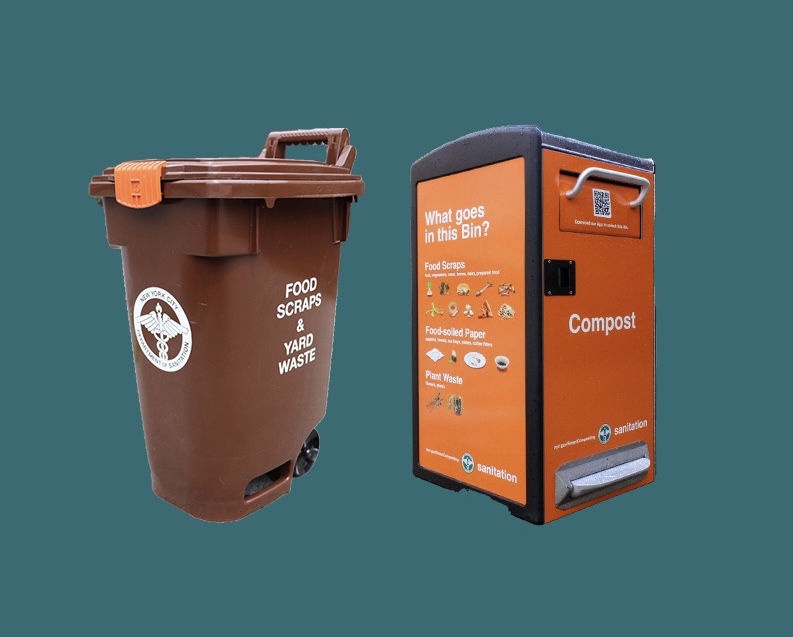How to compost in NYC. Which can create renewable energy!
Composting in New York City is an excellent way to reduce food waste and contribute to a more sustainable environment. Here’s a step-by-step guide on how people in NYC can compost:
- Check Local Composting Programs:
- New York City has various composting programs and initiatives. Check with the NYC Department of Sanitation (DSNY) or visit their website to find information about local composting programs, drop-off locations, or community composting sites.
- Use Brown Bins:
- DSNY provides brown bins specifically for organic waste, including food scraps and yard waste. Many neighborhoods in NYC participate in the curbside organics collection program. Residents can use these bins to separate organic waste from regular trash.
- Collect Compostable Materials:
- Gather kitchen scraps such as fruit and vegetable peels, coffee grounds, eggshells, and non-greasy food scraps. Avoid including meat, dairy, or oily items in the compost, as these can attract pests and slow down the composting process.
- Store Compostable Materials:
- Use a small compost bin or a designated container to store kitchen scraps in your home. This container can be kept on the countertop or under the sink. Empty it into the brown bin regularly to prevent odors and pests.
- Participate in Drop-Off Programs:
- If your neighborhood doesn’t have curbside composting, you can still compost by participating in drop-off programs. New York City’s Sanitation Department has placed orange, solar-powered compost bins on sidewalks, also known as Smart Bins. The bins are located throughout the city and are emptied regularly.
- Many farmers’ markets, community gardens, and environmental organizations accept compostable materials. Find the nearest drop-off location and follow their guidelines.
- Learn about Community Composting:
- Some neighborhoods have community composting sites or local gardens that accept compostable materials. Check with local community centers, environmental organizations, or community gardens to see if they have composting programs.
- Educate Others:
- Spread awareness about the benefits of composting in your community. Encourage neighbors, friends, and family to participate in composting programs. The more people involved, the greater the positive impact on the environment.
- Follow Composting Guidelines:
- Familiarize yourself with the specific guidelines for composting in your area. Different programs may have slightly different rules, so it’s important to follow them to ensure that the composting process is effective and efficient.
By composting in New York City, residents can contribute to the reduction of landfill waste, promote soil health, and support local sustainability efforts. Composting is a simple yet impactful way to make a positive environmental difference right in your community.
